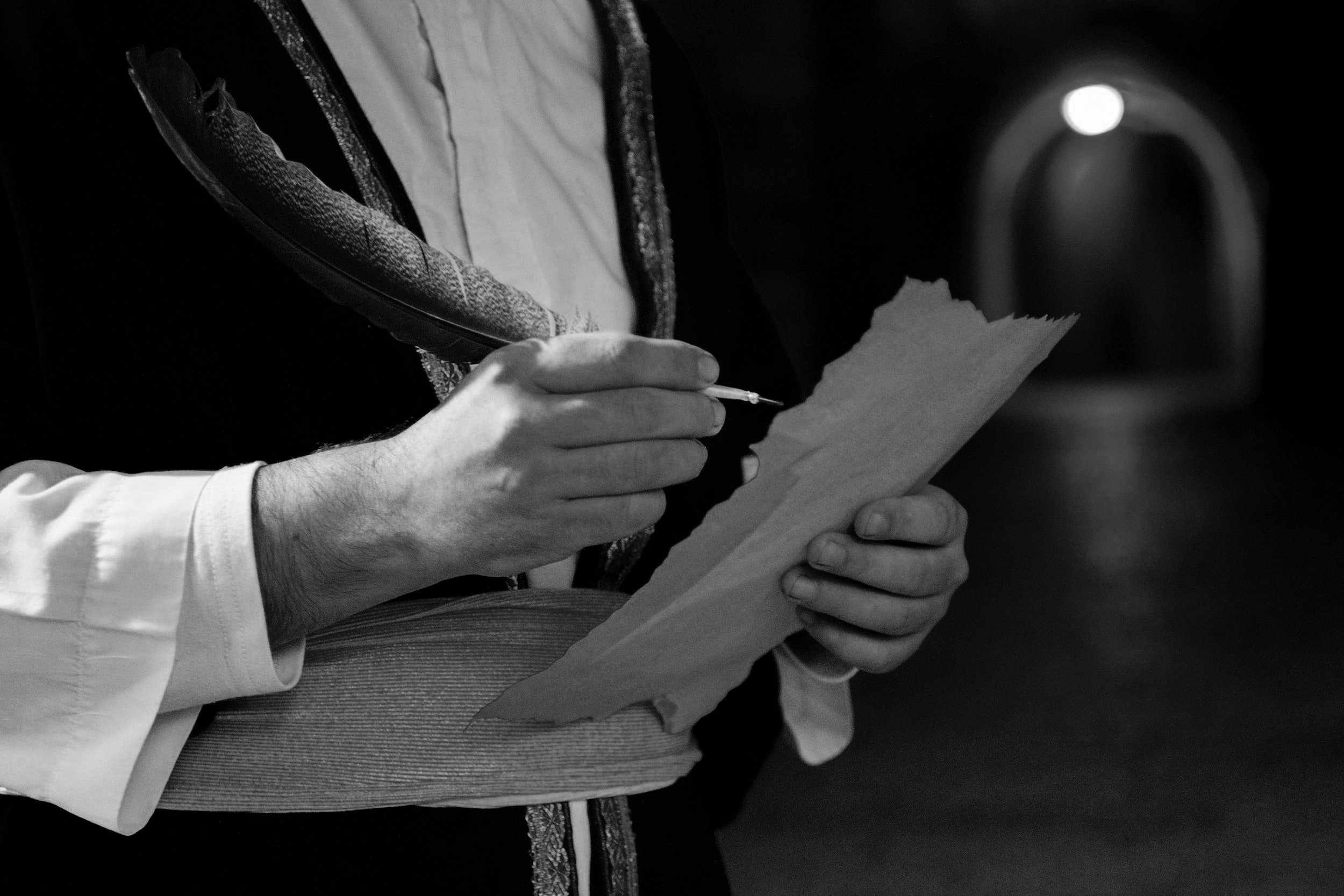
Shakespeare’s Messenger
Shakespeare’s Messenger
This show was born out of a character that appeared on my stage in Hannover some years ago, they said they had no name, was merely a messenger running from one Shakespeare play to another, to deliver the message like in; MacbethAct 5, Scene 5 when after Macbeth's famous ‘tomorrow’ speech, following the news of his wife’s suicide, there [Enters a messenger] to inform the king that the woods have begun to move, as prophesied by the 3 women Wyrd. The responsibility carried by this little figure, for the fate of the play and all the characters within is immense and yet has no name, just ‘a messenger’. If the messenger had delivered the message in Romeo and Juliet, instead of being laid up with the flu, then the play would have ended a comedy, a marriage and everyone living happily ever after.
“Well this little character deserves their own show me thought.”
It was at a time when it was getting difficult to convince bookers that an improvised show was worth booking; what not even a theme, a plot or Keith Johnstone’s games??? So, my trickster came out and said make a show with Shakespeare in the title, then they will think they know what it is about. The reality was that I was feeling the lack of a drama-school training (being a movement based player) and regularly felt wrong footed by people saying “Oh! The Fool, like Shakespeare’s Lear I suppose,” and me having to admit that my knowledge of the bard was limited. Now I can only learn from experience, so I set out to explore the plays and the playwright. Consequently I have played solo Hamlet or in my case Harriet, Twelfth Night, Macbeth, Measure for Measure, and King Lear. A group improvisation of a Midsummer-Nights Dream with some of the Troubadours, and an exploration of writing plays that are politically close to the edge, in which I remember a real paranoia of assassins hiding in the wings, in this show, Shakespeare's messenger was just that, his messenger, running scripts across to the theatre, carrying messages back with requests for plot changes.
I love the journey this show is taking me on, I have worked with teenagers on gender issues brought up by 12th Night. It seems like an endless exploration into the stage being a metaphor for life, which Shakespeare repeatedly used, as in;
“All the world’s a stage, and all the men and women merely players; they have their exits and their entrances; and one man in his time plays many parts,” (As You Like It, act 2, scene 7)
“Life’s but a walking shadow; a poor player, that struts and frets his hour upon the stage, and then is heard no more: it is a tale told by an idiot, full of sound and fury, signifying nothing.” (Macbeth, act 5, scene 5)
“I hold the world but as the world, Gratiano – a stage, where every man must play a part, and mine a sad one” (The Merchant of Venice, act 1, scene 1)
“Let heav’n kiss earth! Now let not Nature’s hand keep the wild flood confin’d! Let order die! And let this world no longer be a stage to feed contention in a lingering act,” (King Henry IV, Part 2, act 1, scene 1).
And finally Lear says;
“When we are born, we cry that we are come to this great stage of fools” (King Lear, act 4, scene 6).
On the Globe Theatre built in 1599, was the motto: totus mundus agit histrionem, “The Whole World Plays the Actor.” In this way for my player, this show explores life as a performance of the ultimate drama upon the universal stage.
“Now what else is the life of mortal men but a kind of fable in which the actors appear on stage under the disguise of different masks? Each plays his assigned part till the stage manager comes forth and takes them off stage. Indeed, he often assigns one actor several roles, so the performer who just now acted a king in purple majesty presently comes back a humble servant in rags. They are but shadows of real persons, yet there’s no other way to put on the show.” (Erasmus, The Praise of Folly)
So as you can see, this show has taken me to my own personal drama school, I feel a bit like a clever fool.
